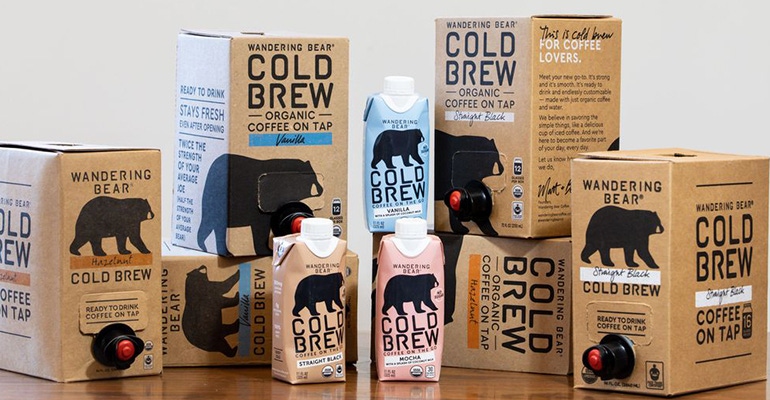Focus on what you can do: Expert guidance for brands' COVID-19 struggles
Helpful tips for managing employees, boosting morale and finding solutions by anticipating problems in these uncertain times.
April 8, 2020

Fred Neubauer, president and CEO of FDM Business Development, learned some key pieces of wisdom 20 years ago after his wife died of cancer.
Suddenly Neubauer had to figure out how to run a business while being a father to a two- and three-year-old. The experience taught him three lessons that he recommends business owners use today to help mitigate the effects of the COVID-19 crisis.
 “Stay in the moment,” says Neubauer, who who lives in Bayside, Wisconsin, and has a condo in Chicago where his company of 24 employees is headquartered. “Eliminate negative thinking, you just can’t let it in. Third, and most importantly, focus on what you can do.”
“Stay in the moment,” says Neubauer, who who lives in Bayside, Wisconsin, and has a condo in Chicago where his company of 24 employees is headquartered. “Eliminate negative thinking, you just can’t let it in. Third, and most importantly, focus on what you can do.”
He says that 99% of the time what you’re doing as a business owner is usually right, but when you let the fear in and think about what can go wrong you can become immobilized.
To keep everyone on his team motivated, Neubauer is now doing a daily rumble instead of a weekly huddle to communicate what’s happening with the company in addition to showcasing two different clients each meeting. Many of FDM’s clients are small brands that were trying to gain capital or access new retailers.
Because FDM employees can no longer travel for in-person meetings, they found a creative solution to stay connected. At the suggestion of Melissa Berry-Brown, FDM’s senior client services administrator, the company ordered green screens for every employee in early March. She then trained employees on how to create virtual backgrounds for more professional-looking meetings at home.
Neubauer then asked a friend who is a television producer to critique his staff members on their Zoom conferencing skills. He says that the feedback has helped FDM employees avoid mistakes such as having a window in the background, which blanks out person’s face, as well as flagging potential background noises and removing unprofessional-looking objects off camera.
“The best thing to do is brainstorm with the people,” says Neubauer, “and come up with a list of activities and actions that you can do. There’s always something more you can do.”
Cross-train and re-train employees
 Wandering Bear Coffee, a company of 15 employees located in Manhattan, sells half of its product to corporate offices. The other half is split between online sales and grocery distribution to consumers.
Wandering Bear Coffee, a company of 15 employees located in Manhattan, sells half of its product to corporate offices. The other half is split between online sales and grocery distribution to consumers.
“It’s like the tale of two cities,” says Matt Bachmann, CEO and co-founder of Wandering Bear Coffee. “Our e-commerce business is going crazy [seeing] 200% week-over-week growth with panic-buying, while our office business has ground to a halt.”
To help its employees reprioritize their time, Wandering Bear has implemented a two-pronged approach. The company first identified short-term risks to help cross-train employees and is now preparing as for potential long-term shifts with more retraining.
“Consumer behaviors are changing and people aren’t receptive to the same conversations they once were because retailers aren’t in growth mode, they are in stock-the-shelves mode [and making] sure the warehouses are full,” Bachmann says. “It’s a totally different mentality. It’s also about preparing for the new normal.”
Assuming that multiple people will get sick at the same time, Bachmann designated a back-up for each of the business' essential positions and created a process manual to document the key business functions covering everything from basic finance and accounting duties to order processing and fulfillment. Now, for example, the inventory manager is able to manage Wandering Bear’s Amazon store.
Besides cross-training, Bachmann also suggests using COVID-19 as a chance to retrain employees, specifically the field sales staff who can no longer make in-person visits regarding accounts. This group is focused on how to better utilize the data on hand in addition to writing more presentations. Now, the area sales manager who usually handles the “street business” is learning how to read retainer data and make headquarter calls.
Bachmann is also paying employees to take online Excel and PowerPoint classes or improve their skills in other areas such as a foreign language.
“It’s about lifting the company's value during this time,” Bachmann says. "To make sure folks are seeing this as an opportunity rather than just a moment of crisis.”
Find solutions by anticipating problems
 Dr. William Madden, co-founder and senior partner of Whole Brain Consulting, an outsource operations firm in Chicago, helps advise over 300 clients ranging from Fortune 500 brands to startups in food safety, contract manufacturing, logistics and research and development.
Dr. William Madden, co-founder and senior partner of Whole Brain Consulting, an outsource operations firm in Chicago, helps advise over 300 clients ranging from Fortune 500 brands to startups in food safety, contract manufacturing, logistics and research and development.
Madden is encouraging clients to obtain a 60-day supply of raw materials if financially feasible.
"Take delivery of raw materials that are critical to your product being made," Madden says. "Make sure you’re the guy with the raw materials so if there are any limiting factors your product can still be produced."
To find new employees Madden suggests hiring people from the struggling foodservice sector because they’ve already had basic training on food safety.
“The curve to get them up to speed is a lot lower than someone just off the street,” Madden says. “Contact temp agencies, but make sure you give them your criteria for the ideal employee or any other job sites you’ve used in the past. For more specialized positions, turn to FoodForce.”
To help weather the next few months, Madden suggests brands build a direct-to-consumer platform if they don’t have one already through Shopify.
If brands have a third-party warehouse that will do direct-to-consumer offerings, Madden suggests finding additional locations outside of major populations. "So if you service Chicago, make sure you’ve got one in Wisconsin or Iowa," he says.
“You want to have that secondary shipment site so if things get worse or if they change the description of who is an essential employee you’re still able to ship directly to consumers.”
He also suggests setting up multiple trucking companies for that reason: “We see the big limiting factor is going to be transportation."
Madden also says it’s important to cross-train employees on extended manufacturing runs.
“So if you have guys in A positions that were highly technical, try and train some of the guys who were in B positions to help support those highly technical roles,” Madden says. “Then take guys that were standard pack-outs and train them to be B-level employees where a moderate level of skill is required.”
Another big risk to many smaller natural food companies is not having enough access to capital to retain employees during this period.
Besides drawing down your line of credit, Madden says that every natural food business should contact their senator and ask them to remove the personal guarantees that are mandated for receiving an SBA small business loan.
The reason: When you have to sign for the SBA loan, anyone who owns 20% or more of a small business must provide an unlimited personal guaranty. That’s a problem, Madden says, if you have investors who own more than 20% of the company. They are unable, for corporate governance reasons, to sign those guarantees.
And that leaves many companies in the lurch.
“Brands are having a hard time getting access to longer-term capital,” Madden says. “And retailers who are making money hand over fist selling everything as soon as they get it should really start shortening their payment schedules to these companies.”
About the Author(s)
You May Also Like




